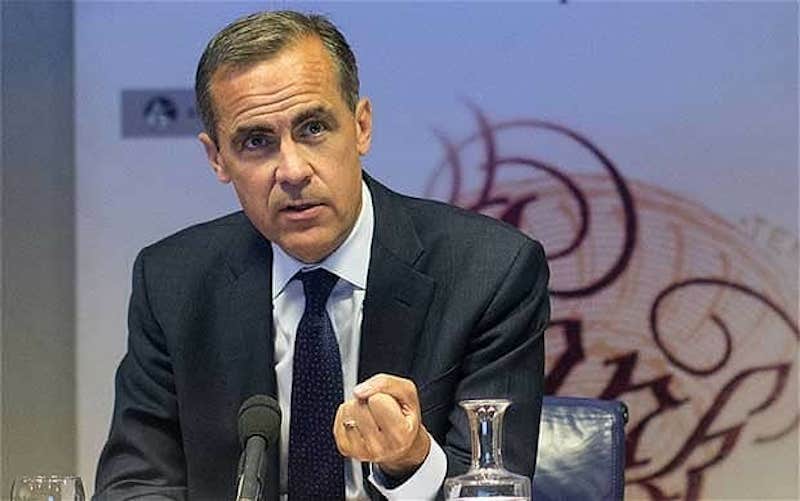Bank of England warns rate hike within months if inflation keeps rising as pound hits one-year high
September 14, 20171.3K views0 comments
The United Kingdom’s central bank, the Bank of England, Thursday said its officials are preparing to raise interest rates within months to restrain accelerating inflation, a fresh sign that a decade-long era of ultra-loose central-bank policy may be coming to a close.
The British pound sterling, reacted immediately, hitting a one-year high against the dollar Thursday after the Bank of England warned that markets could be underestimating how soon interest rates may rise. Sterling rallied 1.2% against both the dollar and euro, climbing to $1.336 and €1.124 respectively. U.K. 10-year gilt yields jumped too, rising from around 1.13% before the announcement.

The BOE held its benchmark interest rate steady at 0.25 percent following its September policy meeting but the rate-setting Monetary Policy Committee said in a statement that a majority of its nine policy makers judged that “some withdrawal of monetary stimulus was likely to be appropriate over the coming months in order to return inflation sustainably to target” if the economy develops as they anticipate.
The statement came alongside the latest policy decision, which saw the committee, led by Governor Mark Carney, vote 7-2 to hold the benchmark rate at 0.25 percent. Ian McCafferty and Michael Saunders maintained their push for a 25 basis-point increase, which would reverse the rate cut put in place after the Brexit vote in 2016.
Read Also:
While officials noted that Brexit still poses a risk to the economy, they said that data since its last decision points to a “slightly stronger picture than anticipated.” There’s also been a renewed inflation pickup and the MPC said it’s seen signs of what could be a tentative recovery in pay growth. That’s a key metric for the bank, and its absence has been cited as signaling that domestic price pressures are under control.
“If the economy continues to hold up, and there are clearer signs that wage growth is building, then the first hike could come somewhat earlier than we had previously envisaged,” said Paul Hollingsworth, an economist at Capital Economics, adding: “The minutes struck a considerably more hawkish tone.”
The MPC also reiterated a warning from its August meeting that monetary policy could need to be tightened “by a somewhat greater extent” than market rates imply. That statement by itself did nothing to shift markets, unlike the latest comments.
While leaving the European Union has cast a shadow over the economic outlook, the resulting drop in the pound has also pushed up inflation, creating a difficult balancing act for Carney. The BOE now sees the rate of price gains exceeding 3 percent next month and remaining above the 2 percent target for years.
The pound was up 0.8 percent at $1.3320 as of 12:45 p.m. London time. The implied probability of a 25 basis-point-rate increase by November this year rose to about 50 percent following the announcement compared to 40 percent just beforehand, according to MPC-dated SONIA. A rate increase is fully priced in for February 2018, compared to around mid-2018 previously.
“The BOE has been upping the rhetoric and this was one of the final hurdles in their communication steps,” said Jordan Rochester, a foreign-exchange strategist in London at Nomura. The bank’s economists specifically predict a hike at November’s meeting.
The BOE’s step toward tighter monetary policy comes as the Federal Reserve is poised to start the process of reducing its $4.5 trillion in securities holdings.
